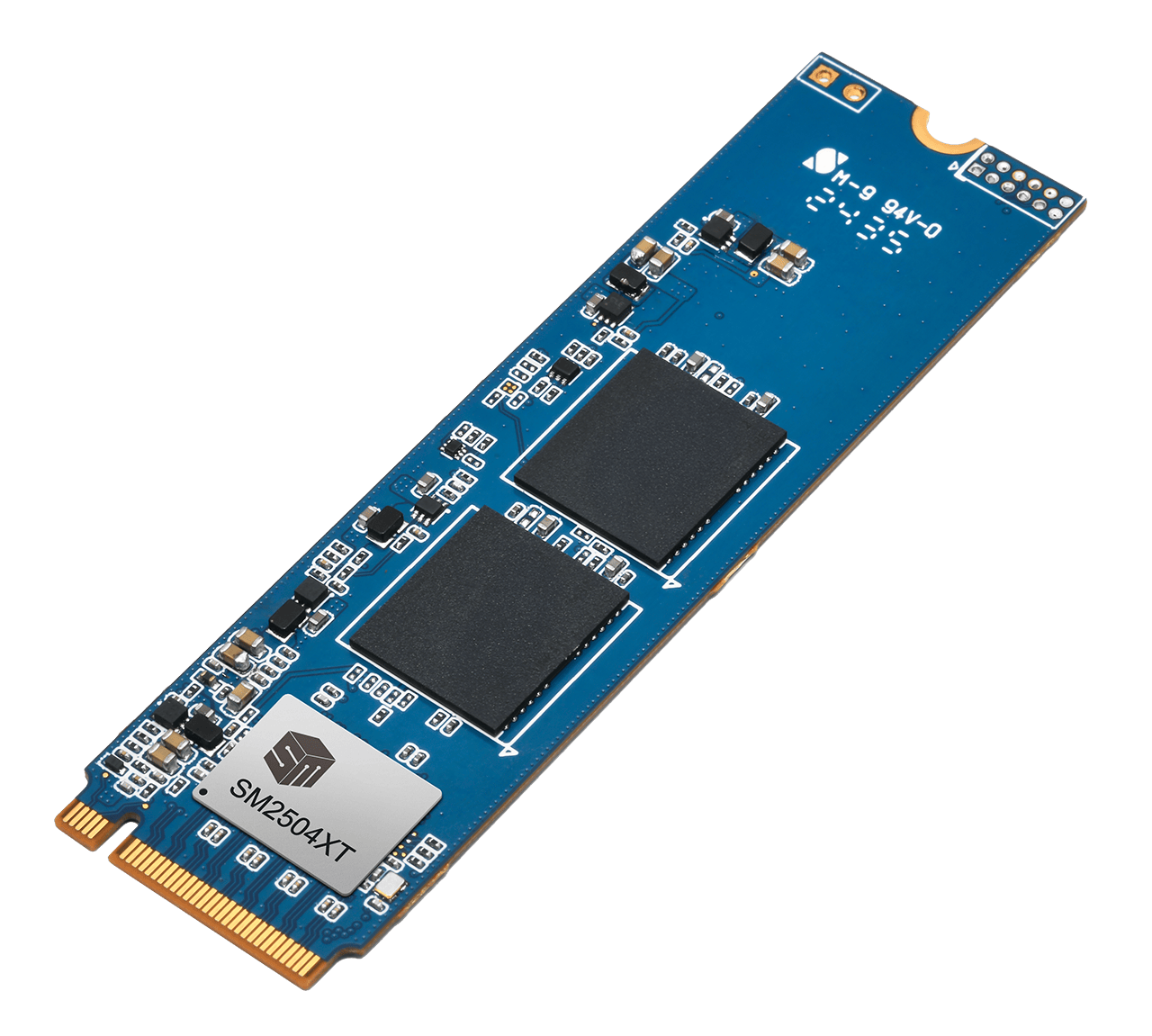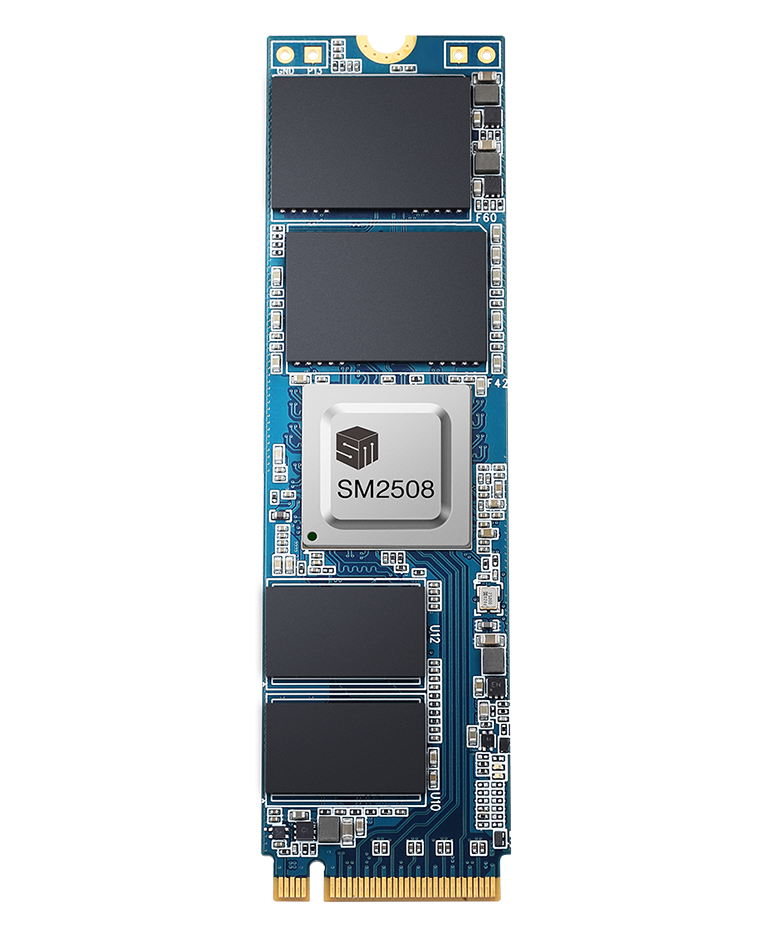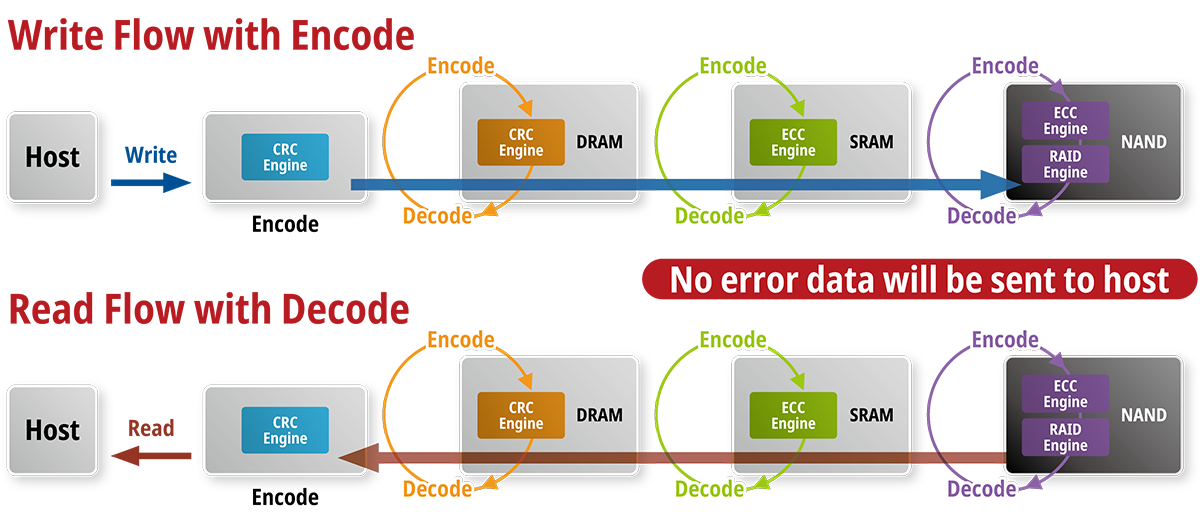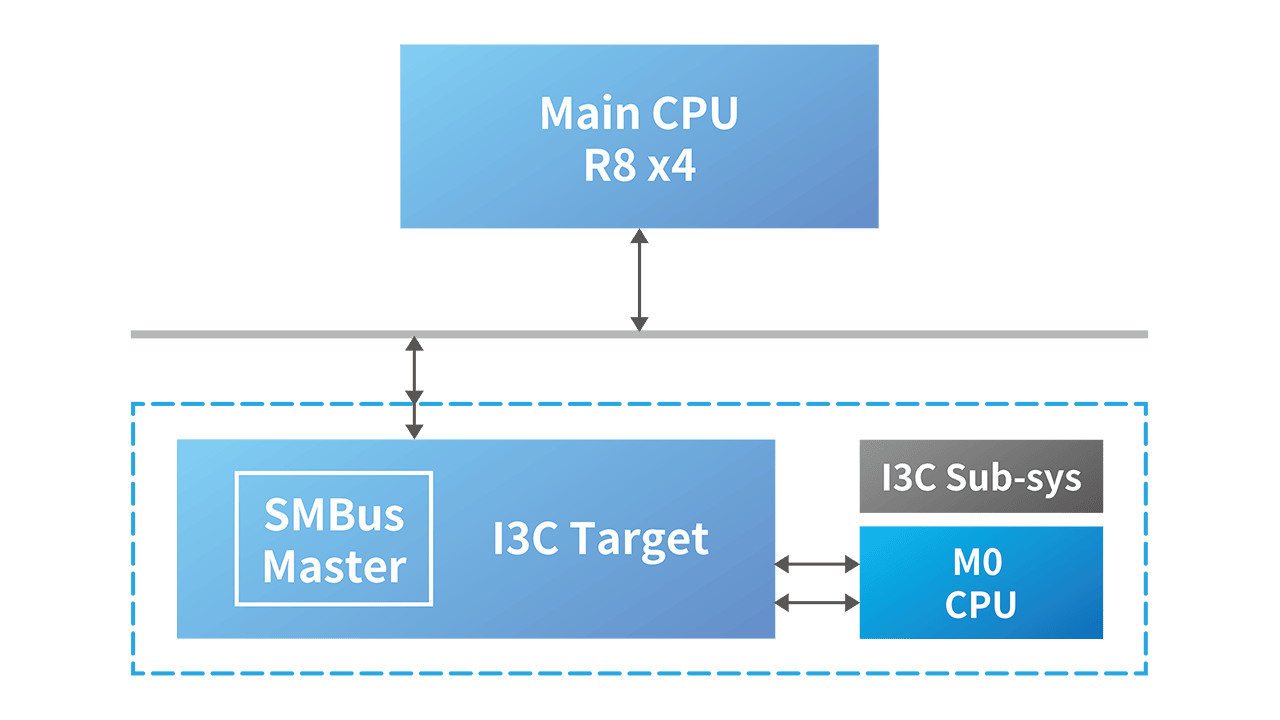Overview
Unleash Lightning Speed: Incredible PCIe Gen5 Performance to Revolutionize AI and Gaming Experiences
The landscape of AI-driven PCs, gaming consoles, and high-performance workstations is evolving rapidly, pushing the boundaries of what data-intensive devices can achieve. Next-generation SSDs must offer faster speeds, greater efficiency, and uncompromising reliability to support this shift. With PCIe Gen5 delivering twice the bandwidth of PCIe Gen4, AI workloads, real-time rendering, and edge applications now require significantly higher throughput and lower latency.
Built for the PCIe Gen5 and NVMe 2.0 ecosystem, this advanced client SSD controller solution delivers exceptional sequential and random performance while maintaining ultra-low power consumption. Optimized for 3D TLC and QLC NAND and manufactured using advanced process technology, it enables scalable, compact, and thermally efficient designs that meet the needs of AI computing, gaming, and mobile workstations in power-constrained environments.
Products

SM2504XT
Best-in-Class Power Efficiency PCIe Gen5 DRAM-less SSD Controller
The SM2504XT is our latest PCIe Gen5 client SSD controller, built on TSMC's advanced 6nm process and engineered for exceptional power efficiency. During active operation, total SSD power consumption remains below 5W. It offers up to 30% lower power usage compared to previous Gen5 controllers and delivers approximately 24% better power efficiency than current mainstream PCIe Gen5 SSDs. This makes it an ideal solution for AI-capable notebooks, gaming systems, and other performance-focused devices.
Optimized for high-density 3D TLC and QLC NAND, the SM2504XT features a 4-channel architecture supporting data rates up to 3600 MT/s and a PCIe Gen5 x4 NVMe 2.0 interface. It achieves up to 11.5 GB/s sequential read, 11.0 GB/s sequential write, and up to 2.0 million IOPS in random performance.
Designed for DRAM-less SSDs, it supports Host Memory Buffer (HMB) and Separate Command Address (SCA) technology to improve throughput and system efficiency. Combined with Silicon Motion's NANDXtend® ECC technology and advanced 4K+ LDPC engine, the SM2504XT ensures robust data integrity, extended endurance, and consistent high performance for next-generation client SSDs.

SM2508
Superior Performance with Low Power PCIe Gen5 SSD Controller
The SM2508 is a high-performance, low-power PCIe Gen5 x4 NVMe 2.0 SSD controller designed for next-generation AI-capable PCs and high-end client devices. Built on TSMC's advanced 6nm process, it delivers outstanding efficiency and performance for systems that demand high throughput, low latency, and energy savings.
Featuring 8 NAND channels supporting up to 3600 MT/s and a quad-core ARM Cortex-R8 CPU, the SM2508 delivers up to 14.5 GB/s sequential read, 13.6 GB/s sequential write, and up to 2.5 million IOPS for both random read and write. This makes it ideal for performance-focused applications, including AI notebooks, gaming platforms, and creator systems.
Compared to previous generations, the SM2508 offers approximately 30% lower active power consumption and up to 70% greater efficiency than competing solutions. Its ultra-low power PS4 state consumes less than 2 mW, making it one of the most power-efficient Gen5 SSD controllers available.
The SM2508 also integrates Silicon Motion's proprietary NANDXtend® ECC technology with an advanced LDPC engine, end-to-end data path protection, and programmable RAID support. These features ensure robust data integrity, enhanced endurance, and reliable long-term performance.
PC OEM SSD Verification Process
To meet the rigorous standards of PC OEM manufacturers, Silicon Motion employs a four-phase development, testing, and verification process covering the entire product lifespan to ensure the quality of SSD controllers.

Best Efficiency PCIe Gen5 SSD Controller
For more about Silicon Motion's videos, please link to SMI's Youtube Channel.
Features
High performance flash memory controller with 4-CH/8-CH flash interface
Supports PCIe Gen5 x4 NVMe 2.0, Gen4 x4, Gen3 x4 NVMe 1.4 and SATA 6Gb/s
Ultra-low power consumption
End-to-End data path protection
Proprietary NANDXtend® error-correcting and data protection technology
DRAM ECC and SRAM ECC
The latest security protocols, including AES 256, Trusted Computing Group (TCG), and Opal full-drive encryption-compliant
Global wear-leveling to extend the product life cycle
Flexible flash memory configuration
Enhanced ESD design
Internal voltage detection circuitry
Available in commercial and industrial grade
Technologies
8th Generation NANDXtend® ECC Technology Supporting 3D TLC and QLC NAND

More Reliable, Efficient and Power-saving ECC technology with Innovative 4K+LDPC engine for the latest and next-generation 3D TLC and QLC NAND
NANDXtend® is an advanced firmware technology exclusively developed by Silicon Motion to meet the design requirements of SSDs with 3D TLC and QLC NAND. Combined with LDPC (low-density parity-check), RAID Data Recovery correction technologies, the NANDXtend® three-level error correction algorithm can decode in parallel and correct errors with precision and at high speed. Together, these technologies extend the P/E cycle performance of 3D NAND, prolonging the SSD's lifespan and ensuring data integrity.
The new generation NANDXtend® includes a performance-optimized 4K+ LDPC engine with an advanced firmware algorithm that delivers higher power efficiency, decoding efficiency, and correction capability to maintain consistent data throughout and provide a better user experience, even as error bits increase throughout the product lifecycle of NAND flash.
End to End Data Path Protection
Silicon Motion's SSD controller solutions incorporate full data error detection with recovery engines to provide enhanced data integrity throughout the entire Host-to-NAND-to-Host data path. The data recovery algorithm can effectively detect any error in the SSD data path, including hardware (i.e. ASIC) errors, firmware errors, and memory errors arising in SRAM, DRAM, or NAND.

TSMC 6nm FinFET Process Technology
Our controllers' progressive architecture is based on 6nm process technology, which offers a 30% reduction in power consumption compared to the 12nm process. This allows for high throughput, lower power consumption, and uncompromising data protection combined with ultra-high performance and dependability in an economical PCIe NVMe SSD storage solution.

Flexible Peripheral Interface Design
The conventional method uses a pure hardware circuit, which is simple to implement but lacks flexibility.
- SMI PCIe Gen5 SSD controllers feature an ARM M0 CPU dedicated to control tasks.
- They can be upgraded through code changes whenever a new standard is published.

Advanced Architecture with SCA (Separate Command Address) Support
The latest PCIe Gen5 SSD controller introduces SCA, an advanced architecture that separates command and address transmission paths. This design improves NAND access efficiency by reducing latency and allowing faster, parallel data transactions across the interface.

Downloads
Blog
Selection Guide
| Filters |
|
||||
|---|---|---|---|---|---|
| Filters | |||||
|
|
|
||||
|
{{ findOption(head.id, item.options, '--') }} |
